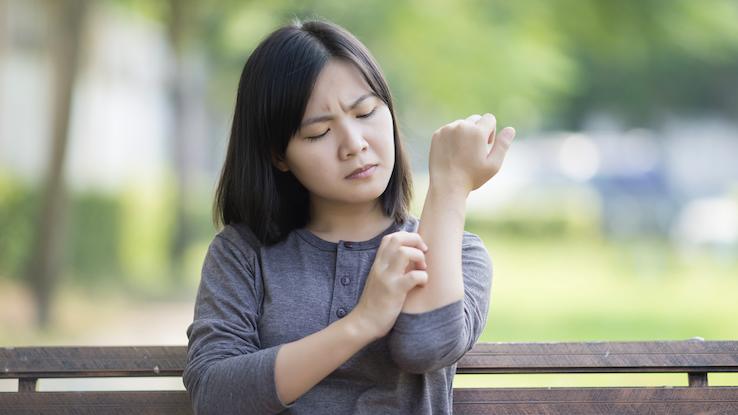
If you spend time outdoors, you’ll probably have to deal with bug bites from time to time. Some bites are just uncomfortable and itchy, while others can cause serious health problems. Protect yourself and your family by learning to identify some of the most common types of bug bites.
1. Tick Bites
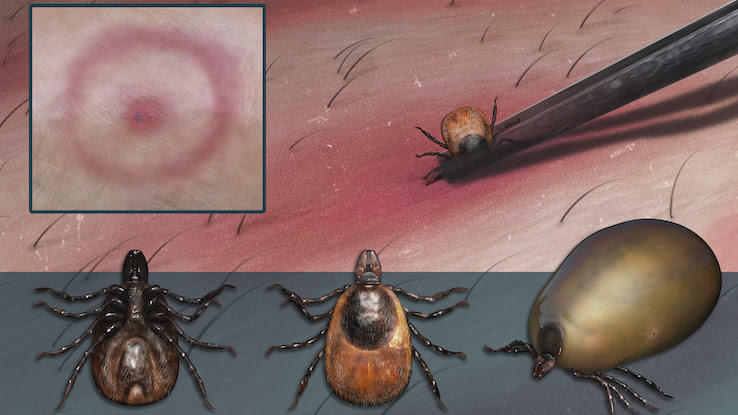
Tick bites can be easy to spot because the tick attaches itself to your body — but you can also get bitten by a tick without ever noticing. If you find a tick attached to your body, use a pair of tweezers to remove the entire tick, including the head. Some ticks carry diseases like Lyme disease. See your doctor if you notice any symptoms of a tick-borne illness — including achy muscles, headache or a circular rash around the bite spot.
2. Mosquito Bites
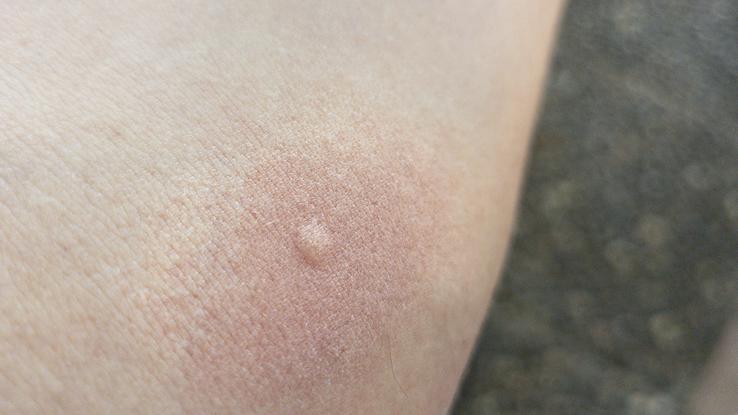
Mosquito bites appear as small, itchy, mound-shaped bumps on the skin. The bite is often red or pink in color and usually centers around a tiny puncture wound. They’re very common during the warm summer months, and they’re usually harmless. However, in some areas, mosquitoes may carry diseases like West Nile virus or malaria. If mosquitoes are bugging you, try planting some mosquito-repelling plants in your yard.
3. Fire Ant Bites
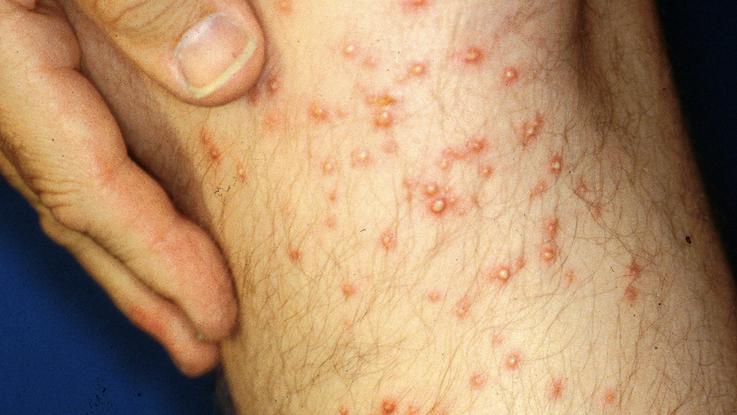
Fire ants bites cause a painful burning feeling. At first, fire ant bites look like firm red bumps. A few hours after the bite, a white head forms on top of the red bump. The head may look like it’s filled with pus, but it will be hard to the touch. The mark left by a fire ant may take up to eight days to heal completely.
4. Flea Bites
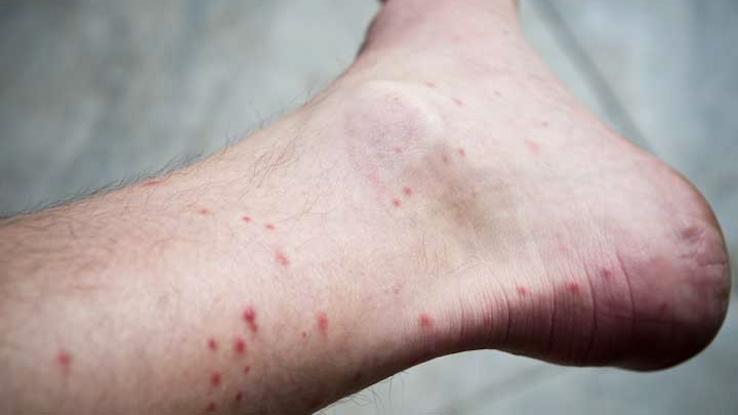
Flea bites cause clusters of small, red, itchy bumps. A cluster of flea bites often looks like a red rash that turns white when you press on it. The bites may bleed and swell, especially after you itch them. They usually show up on the feet and ankles, or in areas where your skin creases (like the inside of your elbows or backs of your knees).
5. Bed Bug Bites
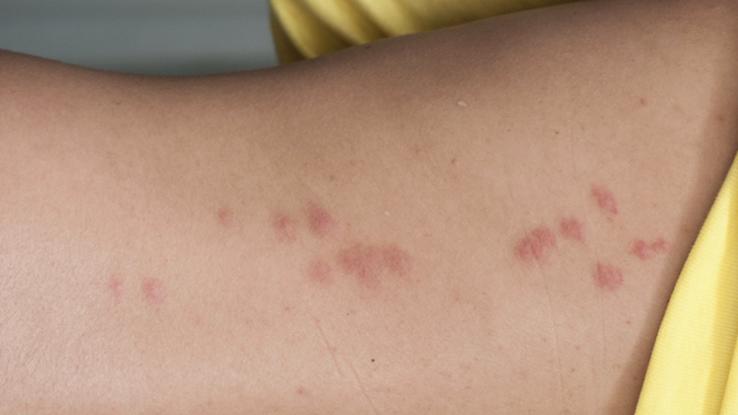
Bed bug bites look like a row or cluster of round red bumps. They feel itchy and sore, and sometimes they cause swelling or blisters. Bed bugs live in mattresses and furniture, and they usually bite at night while you’re sleeping. They can look similar to flea bites — but bed bugs often bite on parts of the upper body that are exposed at night, like the neck, arms or face. They also sometimes bite on the feet.
6. Chigger Bites
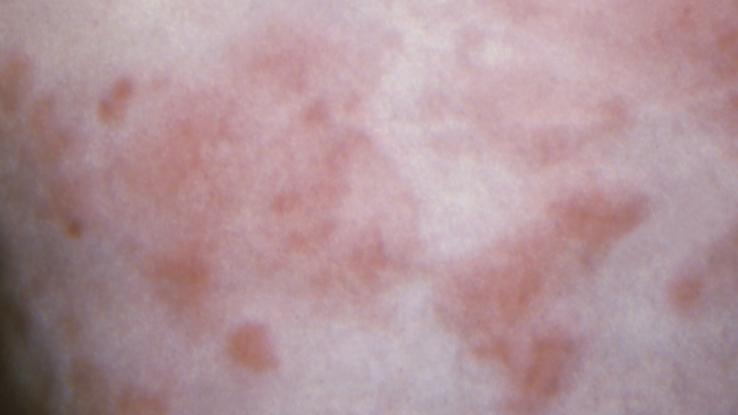
Chiggers are tiny mites that can attach themselves to your skin for several days and leave very itchy, red bite marks. Chigger bites can look similar to the welts caused by poison oak rash. The skin surrounding the bites may become hard, red and swollen before the bites heal.
7. Fly Bites
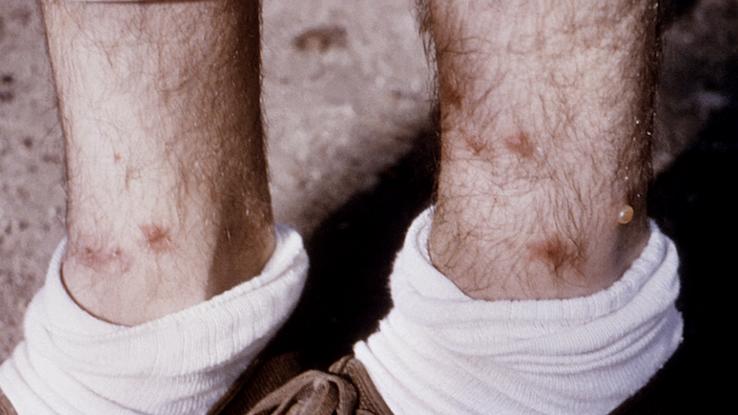
Several types of flies bite humans, including very small flies called midges or no-see-ums. Fly bites usually look like itchy red bumps. Small blisters may also form around or on the bite spots. Bites from horse flies and black flies can be very painful.
8. Carpenter Ant Bites
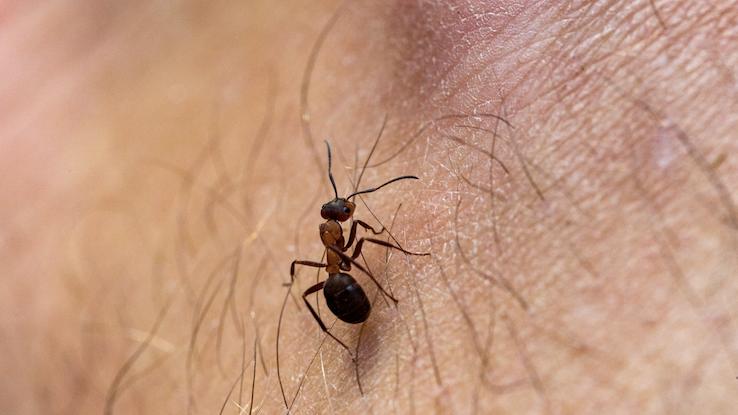
Carpenter ants have a painful, stinging bite that leaves a small red bump. You may feel an intense burning sensation that comes and goes randomly for about a day. The pain usually fades within 24 hours, and the mark disappears soon after.
9. Spider Bites
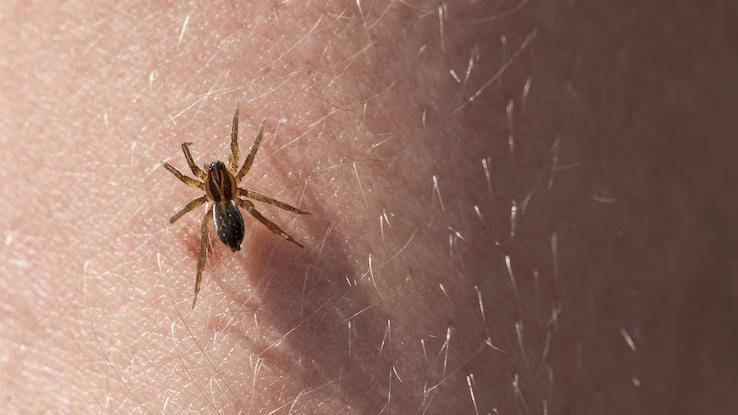
A typical spider bite looks similar to a bee sting or any other common bug bite — like a red, swollen bump on the skin. The bump may be itchy or painful. Most spider bites are harmless, but some people may have allergic reactions. And bites from poisonous spiders like the black widow and brown recluse need immediate medical help.
10. Itch Mite Bites
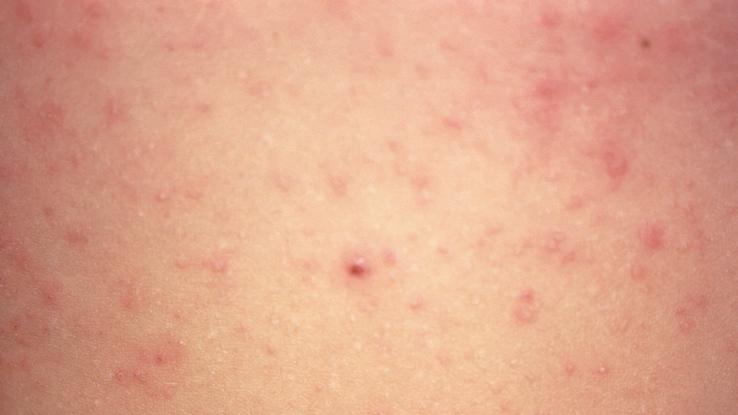
Itch mite bites cause a skin condition called scabies. Scabies is an itchy, pimple-like rash that usually appears between the fingers and on the elbows, wrists, butt and genitals. Scabies spreads easily between people, and you’ll need a prescription medicine to treat it.
Resource Links:
- “Insect Bites,” StatPearls
- “Who Bites Me?,” Diagnostics
- “Bites, Rashes, and Itches,” Postgraduate Medicine





